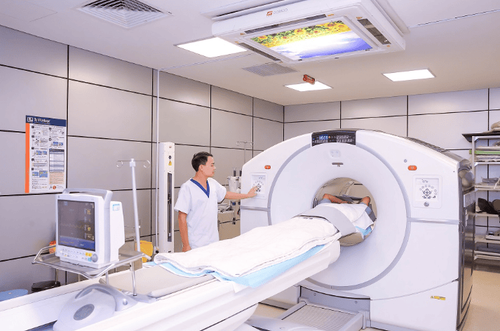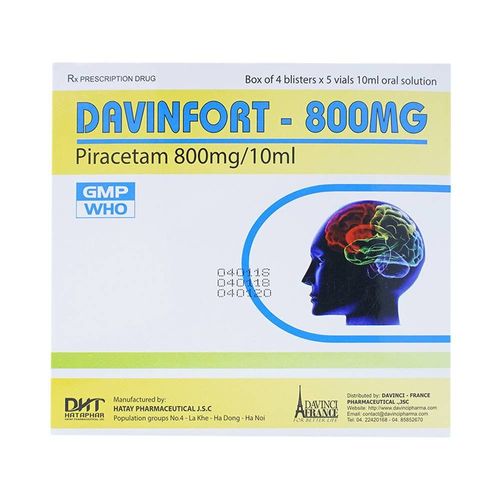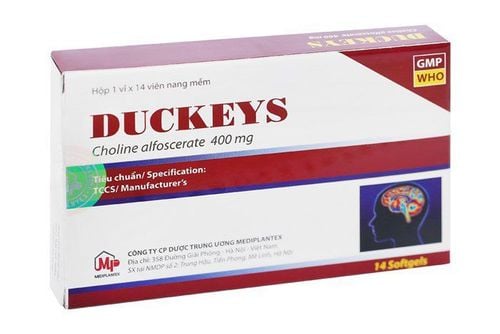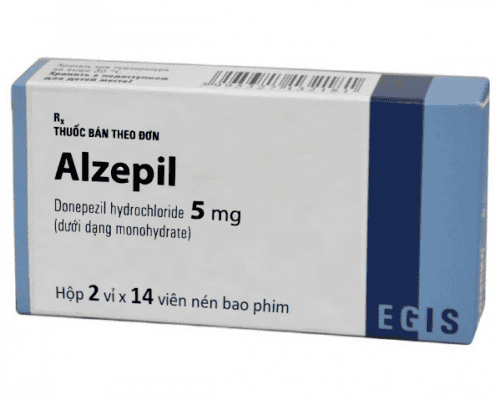This is an automatically translated article.
Diagnosis of Alzheimer's disease is based on the evaluation criteria of the patient's clinical signs and laboratory test results. Early diagnosis and treatment help slow the progression of the disease, and families can make better decisions about future plans.
1. Early Signs of Alzheimer's Disease
Early diagnosis of Alzheimer's disease plays an important role in accessing treatment, patient care, family education and appropriate decision making for future plans. Early warning signs and symptoms of Alzheimer's disease include:
Memory impairment, such as forgetting past and present events; Difficulty concentrating, having a lot of trouble planning or solving problems; Affects daily work at home or at work; Feeling confused at times about the passage of time or place; Have visual or spatial difficulties, such as not sensing distance while driving, getting lost, or forgetting things; Language disorder, inability to accurately express in words when speaking or writing; Poor decision-making ability; Avoiding social work events or interacting with many people; Unusual changes in mood or other changes in behavior and personality, such as depression. Alzheimer's disease can greatly affect quality of life. When warning signs appear, it is very important to get an accurate diagnosis and examination of Alzheimer's disease.

Bệnh Alzheimer có thể ảnh hưởng lớn đến chất lượng cuộc sống
2. Diagnosis of Alzheimer's disease
For an accurate diagnosis of Alzheimer's disease, it is necessary to coordinate the examination of the primary care staff, the neurologist, and the geriatrician to review the medical history, medical history medication and patient symptoms. In addition, doctors also assign patients to perform some necessary tests.
During the examination, the doctor will check and evaluate the following diagnostic criteria for Alzheimer's:
Does the patient have memory or thinking ability (cognitive) impairment? Does the patient exhibit personality and behavioral changes? To what extent is memory and thinking impaired or altered? How do thinking problems affect daily activities? What causes the symptoms? Doctors may order additional tests, brain scans, or refer patients to a specialized memory clinic. These specific tests will provide more useful information to help make an accurate diagnosis, including ruling out other conditions that may cause similar symptoms.
2.1. Rule out other causes Doctors will do a physical exam and check to see if the patient has a medical condition or disorder that may directly or contribute to the symptoms. , for example, signs of stroke, Parkinson's disease, depression, or some other condition that also present relatively similar cognitive impairment, must be ruled out in the Alzheimer's diagnosis process.
2.2. Assessing memory problems and certain other symptoms To evaluate symptoms of Alzheimer's, a doctor may ask patients to answer questions or perform a few small tests related to their ability to: cognitive skills, such as testing memory, abstract thinking, problem-solving skills, language use, and related skills.
Mental status test The doctor may conduct a number of tests to assess the mental state of the patient, to test thinking skills (cognition) and memory capacity. Doctors use scores from these tests as a standard for diagnosing Alzheimer's disease and assessing the extent of memory impairment.
Psychological and Neurological Examination The patient may be examined by a psychiatrist and neurologist. The process of diagnosing Alzheimer's includes extensive tests to assess memory and thinking (cognitive) abilities. Through this, doctors can determine if a person has dementia and whether the patient can safely perform everyday tasks such as driving and managing finances. These tests also assess whether depression is the cause of memory and cognitive symptoms.
Interviewing friends and family Doctors may ask to ask family members and friends of the patient for information related to the behavior they observe in the patient. The questions are mainly related to the change of behavior at the present time compared to the past. The patient's family and friends are often the ones who can very well observe how your behavior has changed over time.
The above series of clinical, physical, and clinical assessments (regarding age and duration of symptoms) will usually provide the physician with all the information needed to make a diagnosis. Alzheimer. However, if the diagnosis is still unclear, the doctor will order additional tests.
In addition, the patient may have some laboratory tests to rule out other causes of symptoms similar to Alzheimer's disease, such as thyroid disorders or vitamin B12 deficiency.
2.3. Brain imaging tests Alzheimer's disease is the result of the gradual loss (degeneration) of brain cells. This degenerative process can manifest in different ways on brain scans. However, brain imaging alone is not enough data to diagnose Alzheimer's.
In fact, brain imaging is not often used as a diagnostic criterion for Alzheimer's disease, because there is some overlap between normal changes in the brain of the elderly and abnormal changes in the brain. commonly associated with Alzheimer's disease. However, brain imaging can help:
Rule out other causes, such as brain hemorrhage, brain tumor or stroke; Distinguish between different types of brain degeneration; Determine the extent of primary degeneration and their boundaries. The most common brain imaging techniques are:
Nuclear magnetic resonance imaging (MRI): Using radio waves and strong magnetic fields to create detailed images of the human brain; Computed tomography (CT) scan: Uses X-rays to get cross-sectional images of the brain; Positron tomography (PET): Using a radioactive substance (called a tracer) to detect the presence of substances in the body, which helps distinguish between different forms of degenerative brain disease.

Chụp cắt lớp vi tính hoặc cộng hưởng từ có thể giúp chẩn đoán hình ảnh não bộ
3. Alzheimer's disease needs to be diagnosed early
If you find yourself or a family member having memory problems, you should see your doctor as this is most likely a sign of Alzheimer's disease. Some people want to hide their symptoms or that of a loved one despite realizing it. This is because a diagnosis of Alzheimer's often comes with losses, such as loss of freedom, loss of driving privileges, and sometimes financial control. Many people wonder if there is any benefit in getting an early diagnosis of Alzheimer's disease when there is currently no cure for the disease.
Although doctors can't cure Alzheimer's, an early diagnosis can offer definite benefits. In which, the most important thing is being aware of the disease, knowing what you can do as well as limiting what you do. In cases where a patient has a medical condition that is causing cognitive decline or complicating memory loss, doctors can initiate treatment.
For Alzheimer's patients, doctors can prescribe pharmacological and non-pharmacological interventions to reduce disease burden. Accordingly, the drug is prescribed to slow the progression of memory and cognitive decline. In addition, patients and caregivers are guided through strategies to improve the living environment, establish routines, organize activities, plan work, and manage changes in the environment. skills to minimize the effects of the disease on later daily life.
Please dial HOTLINE for more information or register for an appointment HERE. Download MyVinmec app to make appointments faster and to manage your bookings easily.
Reference source: Mayoclinic.org












